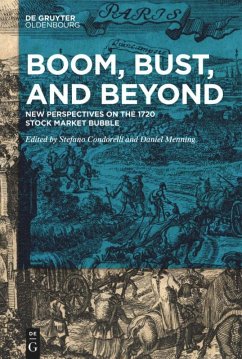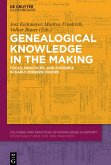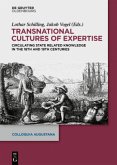Few financial crises, historically speaking, have attracted such attention as the Mississippi and South Sea Bubbles of 1719-20. The twin bubbles had major economic and political implications, sending shock waves through the whole of Europe; they astonished contemporaries, and, to a large extent, they still resonate today. This volume offers new readings of these events, drawing on fresh research and new evidence that challenge traditional interpretations. The chapters engage, in particular, with:
the geographical frame of the 1719-20 bubbles
their social, cultural, economic and political impact
the ways in which contemporaries understood speculation
the contributions and impact of a diverse array of participants
popular and print memorialization of the events
Overall, the volume helps to rewrite the history of the 1719-20 bubbles and to recontextualize their place within eighteenth-century history.
the geographical frame of the 1719-20 bubbles
their social, cultural, economic and political impact
the ways in which contemporaries understood speculation
the contributions and impact of a diverse array of participants
popular and print memorialization of the events
Overall, the volume helps to rewrite the history of the 1719-20 bubbles and to recontextualize their place within eighteenth-century history.
"It is something which anyone working on the Bubble Year should read and, for the most part, will enjoy." Helen Paul in: GHIL Bulletin, XLII/2 (2020), 63-67.
"Although there is still plenty we need to learn about the Financial Revolution, the 1720 bubbles, and their respective global contexts, Boom, Bust, and Beyond goes a long way towards enriching our understanding of early modern global financial capitalism." Carl Wennerlind in: H-Soz-Kult, 07.09.2021, www.hsozkult.de/publicationreview/id/reb-29757 (07.09.2021).
"Although there is still plenty we need to learn about the Financial Revolution, the 1720 bubbles, and their respective global contexts, Boom, Bust, and Beyond goes a long way towards enriching our understanding of early modern global financial capitalism." Carl Wennerlind in: H-Soz-Kult, 07.09.2021, www.hsozkult.de/publicationreview/id/reb-29757 (07.09.2021).









